Current News
/ArcaMax

How a TikToker and former actress is helping lead California's earthquake work
SACRAMENTO, Calif. -- Wendy Bohon approached a table at the California Geological Survey library in Sacramento and began to give Puck’s closing speech from William Shakespeare’s “A Midsummer Night’s Dream.”
Only this time, some of the speech was adapted to be about earthquakes. Once again, Bohon was making her worlds converge.
Bohon ...Read more
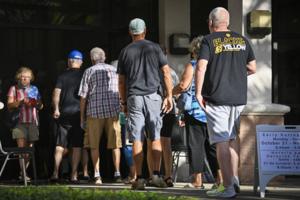
Florida plan to verify citizenship could snare lawful registered voters in bureaucratic morass
FORT LAUDERDALE, Fla. — An effort in the Florida Legislature sounds simple and straightforward: ensure that only U.S. citizens vote in state elections.
Republicans who control the state Senate and House of Representatives are advancing legislation they say would do just that, brushing aside warnings that they are about to create a logistical ...Read more

Hundreds of San Diego County schools, parks and care facilities are near potentially dangerous oil wells, data show
SAN DIEGO — Hundreds of schools, child cares, parks and other care facilities around San Diego County are located near idle oil wells, which can emit toxic gases, a new study finds.
They’re among the nearly 4,500 wells statewide that an analysis of state data by the Center for Biological Diversity found are within 3,200 feet of such ...Read more

Baltimore ramps up 911 crisis diversions, yet response times draw concern
BALTIMORE — Baltimore officials say they’ve boosted the number of 911 calls diverted to mental health professionals, but acknowledge that long wait times and continued police involvement show the city’s crisis response system remains a work in progress.
An investigation by The Baltimore Sun in July 2025 found a sharp drop in emergency ...Read more
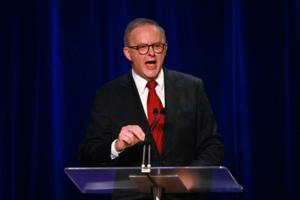
Australia's Albanese rejects immigration cuts as far-right grows
Australian Prime Minister Anthony Albanese dismissed the idea of immigration cuts or tighter border checks, even as electoral polls show a surge in support for the country’s hard-right One Nation Party.
“We have tight checks,” Labor leader Albanese said in an interview with Sky News aired on Sunday, when asked if he planned to harden ...Read more

Moroun donates $1 million to MAGA fund days before Trump's bridge threat
DETROIT — Matthew Moroun, whose family owns the Ambassador Bridge, gave $1 million to a political action committee that supports Republican President Donald Trump less than a month before Trump threatened to block the opening of a new, competing span between Detroit and Canada.
The $1 million receipt for the super PAC MAGA Inc. was revealed ...Read more
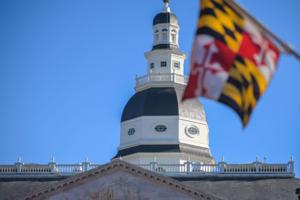
Amid affordability woes, Maryland Democrats focus on immigration
WASHINGTON — Marylanders have for months faced high grocery prices and rising energy bills. Polls show affordability is a major issue. But lawmakers in Annapolis have focused on a more divisive topic: immigration.
While the state legislature has been slow to address cost concerns, they moved quickly to act against the U.S. Immigration and ...Read more
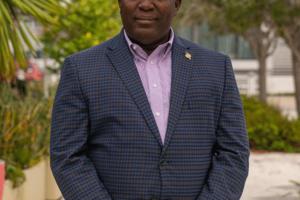
Feds say former North Miami mayor lived a 30-year lie, move to strip him of citizenship
MIAMI — From the moment Philippe Bien-Aime stepped foot in the United States on July 25, 1995, immigration authorities, say the Haitian native has been living a lie.
The former mayor of North Miami arrived in the U.S. with his photo on someone else’s passport, authorities say in a federal lawsuit seeking to strip Bien-Aime of his ...Read more
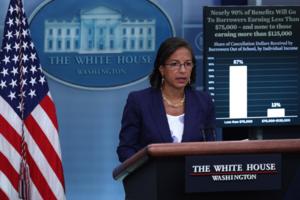
Trump threatens Netflix with 'consequences' over Susan Rice board seat
Donald Trump called on Netflix to fire board member Susan Rice or “pay the consequences,” after she said that Democrats would take action against corporations that “take a knee” to the president.
Rice, who was former President Barack Obama’s national security adviser and United Nations ambassador and also served in Joe Biden’s White...Read more
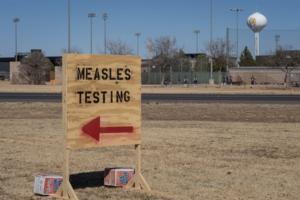
Measles case confirmed in a person who visited a Montgomery County car dealership and a Wawa
PHILADELPHIA — Montgomery County health officials on Saturday warned residents of a possible measles exposure at two locations in the county, after confirming another case of the highly contagious disease.
A person infected with measles visited a car dealership and a convenience store in Royersford and Limerick earlier this week, officials ...Read more
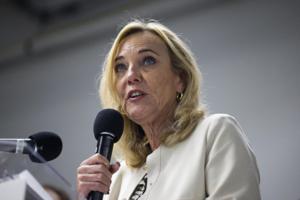
LA County pushes to change law that opened floodgates for billions in sex abuse payouts
LOS ANGELES — At a luncheon this week for L.A. County politicos, Supervisor Kathryn Barger pitched what she framed as a commonsense reform.
Legislators in Sacramento, she argued, need to change a 2019 law that extended the statute of limitations for sex abuse lawsuits, opening the floodgates for decades-old claims that have cost the county ...Read more
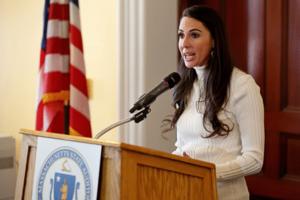
Massachusetts AG representing lawmakers against DiZoglio in audit lawsuit: 'Insanity'
BOSTON — The Massachusetts AG’s office is representing House Speaker Ron Mariano and Senate President Karen Spilka as they look to dismiss Diana DiZoglio’s lawsuit against them, a move that the state auditor describes as “insanity.”
DiZoglio is speaking out after the Attorney General’s Office wrote letters to the state Supreme ...Read more
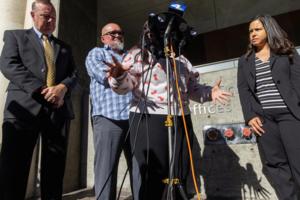
LAUSD borrowing $250 million to settle sex abuse claims -- on top of earlier half billion
LOS ANGELES — With costs mounting for alleged sexual misconduct cases, the Los Angeles school board has approved $250 million in bonds — on top of $500 million already authorized less than a year ago — to fund payouts to victims.
The cost of both bond issues, including financing, is expected to be more than $1 billion, based on cost ...Read more
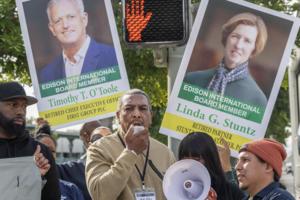
Black Altadena fire victims clash with Edison over compensation
LOS ANGELES — Outside a hall where Southern California Edison was celebrating Black History Month on Friday, a group of Altadena residents stood on the sidewalk, waving signs and talking of the homes and family members they lost in last year's Eaton fire.
"They're in there celebrating Black history and they've destroyed a Black town," said ...Read more

4 dead in fiery car crash in Long Beach, federal agency investigating
LOS ANGELES — Four people were killed Saturday in a fiery car crash near Long Beach Airport, and police are investigating whether speed played a role.
The National Transportation Safety Board, the federal agency that investigates significant crashes on highways, railroad lines and commercial airspace, said on X that it is sending its own team...Read more

Colorado Lottery wants to start selling tickets online, but a legislative bill would scratch the plan
DENVER — The Colorado Lottery is planning to introduce online ticket sales by 2027 as a way to increase revenue for outdoors projects, but critics warn it could be a slippery slope toward legalized internet gambling — similar to playing online slot machines.
A bipartisan group of Colorado legislators on Friday filed a bill to block online ...Read more

Former judge admits signing invalid arrest warrant in Haiti president's assassination
The Haitian judge who signed an arrest warrant for President Jovenel Moïse that figured prominently in the late leader’s July 7, 2021, assassination testified Friday that the document was illegal and that he had no authority to remove a sitting head of state.
Jean Roger Noelcius also admitted under oath during a deposition in Miami federal ...Read more

French far-right protest over activist death ends peacefully
A march in Lyon organized by far-right groups to honor a man beaten to death in a fight went off without violence Saturday after authorities put a massive police presence on the streets.
About 3,200 people turned out for the rally and march, local media reported, citing estimates from the prefecture of the region. The event paid homage to 23-...Read more

Bodies of all 9 skiers killed in Tahoe-area avalanche retrieved, as slide risk lowered slightly
SAN JOSE, Calif. — The four remaining bodies of the nine skiers killed in Tuesday’s avalanche were retrieved Saturday morning, after five others were recovered Friday.
Authorities confirmed the identities of all the victims Saturday afternoon.
On Saturday morning, a U.S. Army California National Guard Blackhawk med-evac helicopter took off...Read more
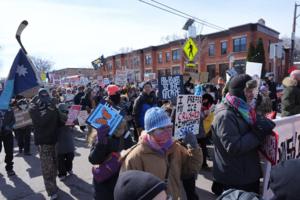
Hundreds march in south Minneapolis to honor Alex Pretti
MINNEAPOLIS — Hundreds gathered in Minneapolis’ Whittier Park on Saturday, Feb. 21, to mark the month that has passed since Alex Pretti was shot by immigration agents.
On a sunny day with temperatures in the teens, organizers handed out signs at 11 a.m. and led chants through megaphones. The crowd also honored Renee Good, who was shot and ...Read more
Popular Stories
- Clinics sour on CMS after agency scraps 10-year primary care program only months in
- 'A war room': Inside Epstein's campaign to influence public opinion
- Miami had a language law before English-only driving tests. See what happened
- A fatal avalanche put a spotlight on the risks of backcountry skiing. Here's why people will keep going
- How poisonous mercury can get from coal-fired power plants into fish you eat – EPA weakens rules meant to lower the risk





